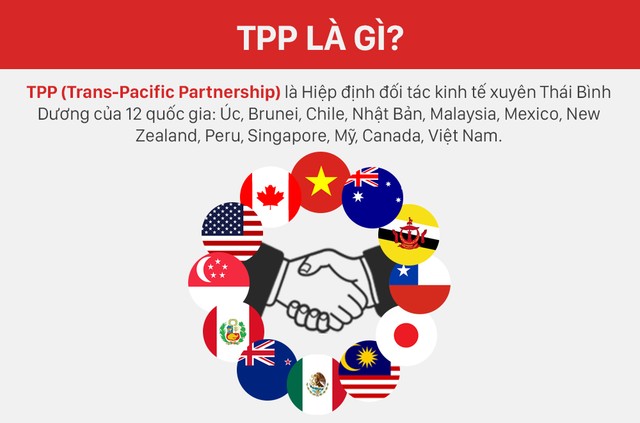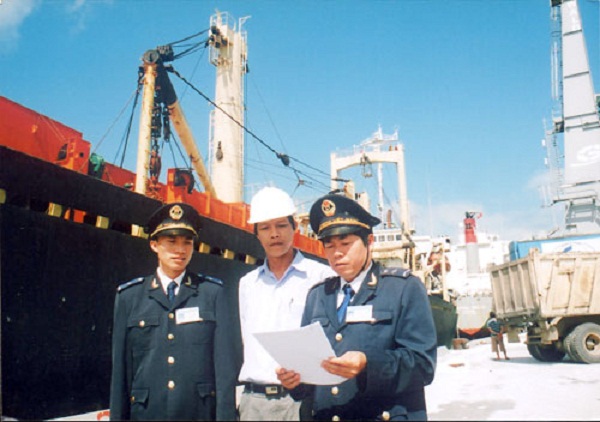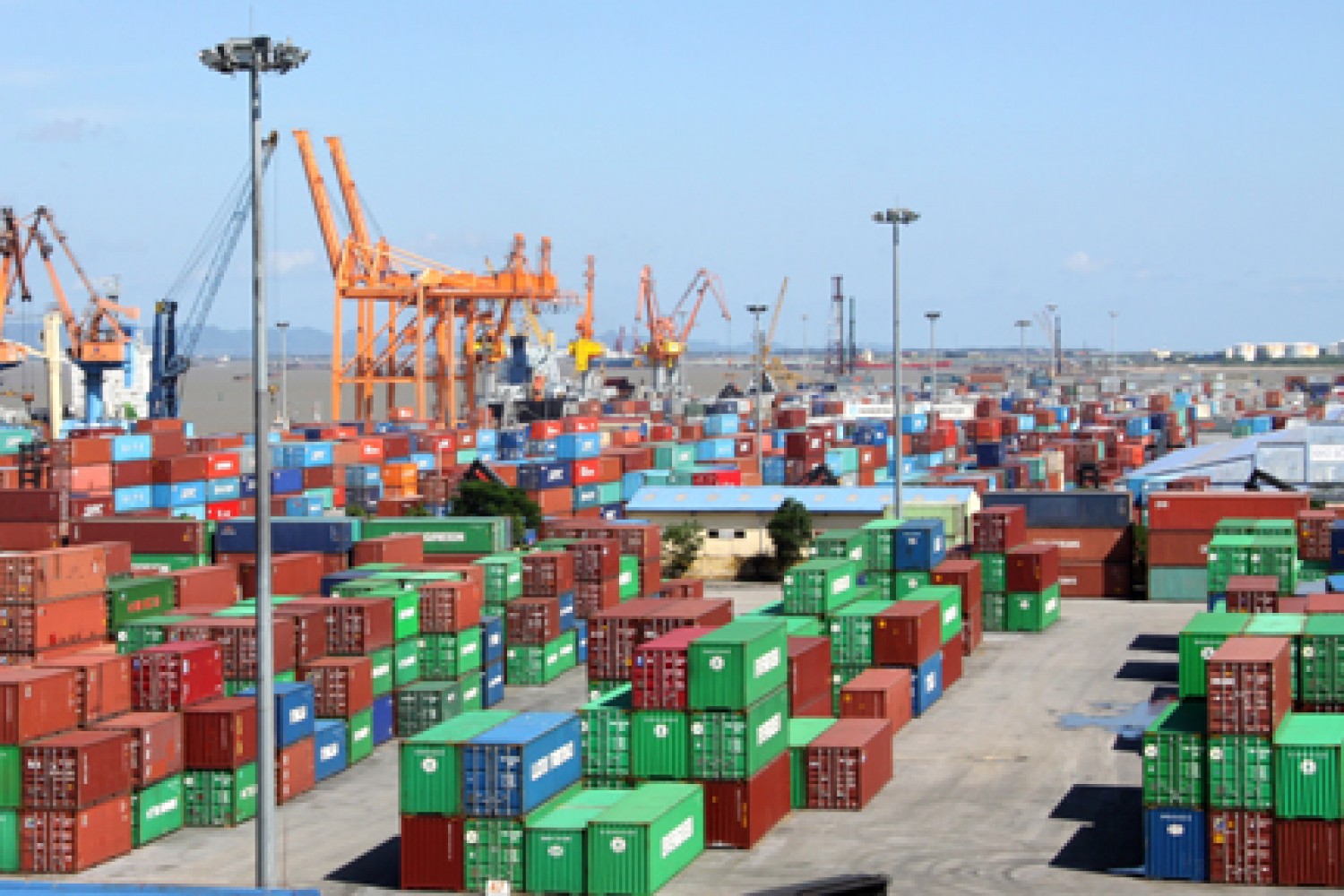TPP - Chapter 15 - Government Procurement of Vietnam
Chapter 15 of the TPP Agreement stipulates the principles, scope, and measures when implementing procurement of the Government of Vietnam within the framework of the TPP Agreement.
CHAPTER 15
GOVERNMENT PROCUREMENT
Article 15.1: Definitions
For the purpose of this Chapter:
BOT contract and concession contract for public works is a contractual agreement the primary objective of which is to promote the construction or restoration of infrastructure, plants, buildings, equipment, or other state-owned works and under that contract, in consideration of the supplier's performance of the contractual agreement, the procuring entity shall grant the supplier, for a specific period of time, provisional ownership or the right to control, use, and demand payment for the usage of these works throughout the contract duration.
Commercial goods or services are types of goods sold or offered for sale on the commercial market to, and usually bought by, non-state buyers for non-governmental purposes.
In writing means any expression in letters or numbers that can be read, reproduced, and may be subsequently transmitted. This can include information transmitted and stored electronically;
Selective tendering is a procurement method whereby the procuring entity has the discretion to select one or more suppliers;
Multi-use list means a list of suppliers pre-approved by the procuring entity as meeting the conditions of participation on that list and which the procuring entity intends to use multiple times;
Notice of procurement means a notice issued by the procuring entity to interested suppliers to submit applications to participate, tenders, or both;
Open tendering is a procurement method whereby all interested suppliers may submit tenders;
Procuring entity refers to an organization listed in Annex 15-A;
Publication means the dissemination of information through widely distributed written or electronic means available to the public.
Qualified supplier is a supplier that the procuring entity recognizes as fully meeting the conditions of participation;
Selective tendering is a procurement method whereby the procuring entity invites only qualified suppliers to submit tenders.
Service includes construction services unless otherwise specified;
Supplier is a person or group of persons supplying or potentially supplying a good or service to the procuring entity; and
Specification is a tendering requirement that:(a) Sets out the characteristics of:(i) Goods procured, including quality, performance, safety, and dimensions, or the processes and production methods thereof; or(ii) Services procured, or the processes or methods for their provision, including any applicable administrative provisions;(b) Addresses terminology, symbols, packaging, marking, or labeling requirements as they apply to goods or services.
Article 15.2: Scope
Scope of application of this Chapter
-
This Chapter applies to any measure related to regulated procurement.
-
For the purposes of this Chapter, regulated procurement means government procurement:(a) For a good or service, or any combination intentionally mentioned in each Party's Schedule in Annex 15-A;(b) Through any form of contracting including purchasing, leasing, renting, with or without the option to buy; BOT contracts, and concession contracts for public works;(c) Where the value, as estimated in accordance with paragraphs 8 and 9, equals or exceeds the threshold specified in each Party's Schedule in Annex 15-A at the time of publication of the procurement notice; (d) By a procuring entity;
Unregulated activities
- Unless specified in each Party's Schedule in Annex 15-A, this Chapter does not apply to:
(a) Acquisition or rental of land, existing buildings, or other immovable properties or rights thereon;(b) Non-contractual agreements or any form of assistance which one Party, including its procuring entities, provides, including cooperative agreements, grants, loans, equity infusions, guarantees, subsidies, fiscal incentives, and sponsorship arrangements;(c) Procurement of financial or depository agency services, liquidation and management services for regulated financial institutions, or services related to the sale, redemption, and distribution of public debt, including loans, government bonds, debentures, and other securities;(d) Employment contracts for public services;(e) procurement:(i) Conducted with the purpose of providing international assistance including development aid;(ii) Funded by an international organization or foreign grants, loans, or other kinds of assistance where the procurement rules or conditions of the international organization or donor apply. If the rules or conditions of the international organization or donor do not restrict the participation of suppliers, the procurement shall comply with Article 15.4.1 (General Principles); or(iii) Conducted under a specific protocol or condition of an international agreement related to the stationing of troops or the joint implementation of a project by the signatory countries; and(f) Procurement of a good or service outside the national territory of the procuring entity for consumption outside that national territory;
Schedules
- Each Party shall specify the following information in its Schedule in Annex 15-A:
(a) In Section A, central government agencies whose procurement is covered by this Chapter;
(b) In Section B, subcentral government agencies whose procurement is covered by this Chapter;
(c) In Section C, other entities whose procurement is covered by this Chapter;
(d) In Section D, goods covered by this Chapter;
(e) In Section E, services other than construction services covered by this Chapter;
(f) In Section F, construction services covered by this Chapter;
(g) In Section G, General Notes;(h) In Section H, the form for regulatory value adjustments to be applied;
(i) In Section I, the information publication required by Article 15.6.2 (Publication of Procurement Information); and
(j) In Section J, any transitional measures consistent with Article 15.5 (Transitional Measures);
Compliance
-
Each Party shall ensure that its procuring entities comply with this Chapter when conducting government procurement.
-
No procuring entity shall prepare, design, or structure a procurement plan, or otherwise divide or parcel out a procurement plan into separate procurement plans at any stage of the procurement process, or use a specific method to estimate the value of a procurement plan to avoid the obligations under this Chapter.
-
Nothing in this Chapter shall be construed to prevent a Party, including its procuring entities, from implementing new procurement policies, procedures, or contracting forms provided they are not inconsistent with this Chapter.
Valuation
- When estimating the value of a procurement plan for the purpose of determining whether it constitutes government procurement, a procuring entity shall include the maximum estimated total value of the procurement over its entire duration, considering:
(a) All forms of remuneration, including premiums, fees, commissions, interest, or other income that may be provided under the contract;(b) The value of any option clause; and(c) Any contracts signed at the same time or over a certain period with one or more suppliers for the same procurement plan;
- If the maximum estimated total value of a procurement plan over its duration is not determinable, the procurement plan shall be regarded as government procurement unless otherwise excluded under this Agreement.
Article 15.3: Exceptions
- To the extent that a measure is not applied in a manner that would constitute arbitrary or unjustifiable discrimination between the Parties, or a disguised restriction on international trade between the Parties, nothing in this Chapter shall be construed to prevent a Party, including its procuring entities, from adopting or maintaining a measure:
(a) Necessary to protect public morals, order, or safety;
(b) Necessary to protect human, animal, or plant life or health;
(c) Necessary to protect intellectual property; or
(d) Relating to goods or services of handicapped persons, of philanthropic or non-profit institutions, or of prison labor;
- The Parties understand that subparagraph 1(b) includes environmental measures necessary to protect human, animal, or plant life or health.
Article 15.4: General principles
National treatment and non-discrimination
- With respect to any measure concerning government procurement, each Party, including its procuring entities, shall immediately and unconditionally accord to the goods and services of any Party and to the suppliers of any Party treatment no less favorable than that accorded by the Party, including its procuring entities, to:
(a) Domestic goods, services, and suppliers; and(b) Goods, services, and suppliers of any other Party.
For greater certainty, this obligation applies only in the context of treatment accorded by one Party to the goods, services, or suppliers of any other Party under this Agreement.
- With respect to any measure concerning government procurement, neither Party, including its procuring entities, shall:
(a) Discriminate against suppliers established in that Party’s territory based on the degree of foreign affiliation or ownership; or
(b) Discriminate against a supplier established in that Party’s territory based on the goods or services the supplier offers are goods or services of any other Party.
- All purchase orders under government procurement contracts shall be executed in accordance with the principles set out in paragraphs 1 and 2 of this Article.
Procurement methods
- A procuring entity shall use open tendering procedures for the procurement of goods, services, and construction services unless otherwise specified in Article 15.9 (Supplier Qualifications) or Article 15.10 (Selective Tendering).
Rules of origin
- Each Party shall apply to goods in government procurement the rules of origin that it applies in the normal course of trade to those goods.
Offsets
- With respect to government procurement, no Party, including its procuring entities, shall seek, take account of, establish, or impose any offset at any stage of a procurement plan.
Measures not specific to procurement
- Paragraphs 1 and 2 do not apply to customs duties and charges of any kind imposed on or in connection with importation, the methods of imposing such duties and charges, import regulations or formalities, and measures affecting trade in services other than measures governing government procurement.
Use of electronic means
-
The Parties will endeavor to provide opportunities for government procurement to be conducted through electronic means, including the publication of procurement information, notices, and tender documentation, and the receipt of tenders.
-
Where conducting government procurement through electronic means, the procuring entity shall:
(a) Ensure procurement is conducted through the use of information technology systems and software, including systems and software for authentication and encryption of information that are generally available and interoperable with other information technology systems and software; and
(b) Establish and maintain mechanisms that ensure the integrity of information provided by suppliers, including the submission of tenders and proposals.
Article 15.5: Transitional Measures
- A Party that is a developing country Party may, with the agreement of the other Parties, adopt or maintain one or more of the following transitional measures, for the transition period specified in Section J of each Party’s Schedule in Annex 15-A:
(a) A price preference program, provided that such a program:
(i) Preferences bids that include goods or services originating within the developing country Party; and
(ii) Is transparent, and the preference and the manner in which it is applied in the procurement plan are clearly described in the notice of intended procurement;
(b) Offsets, provided that any requirement or consideration for imposing offsets is clearly stated in the notice of intended procurement;
(c) A higher threshold value than its normal threshold;
Any transitional measure adopted under this paragraph shall be applied in a manner that does not discriminate among the other Parties.
-
The Parties may agree to delay implementation of any obligations under this Chapter (excluding Article 15.4.1(b) (General Principles)), by a developing country party during its implementation period. The implementation period shall be the period necessary to implement the obligation.
-
Any developing country Party that has agreed to an implementation period for an obligation under paragraph 2 shall list in its Schedule the agreed implementation period, the specific obligation subject to the implementation period, and any interim obligation that it agrees to comply with during the implementation period.
-
After this Agreement enters into force for a developing country Party, the other Parties may, at the request of that developing country Party:
(a) Extend the transition period for a measure adopted or maintained under paragraph 1 or an implementation period agreed under paragraph 2; or
(b) Agree to the adoption of a new transitional measure under paragraph 1, in exceptional circumstances not foreseen.
-
A developing country Party that has agreed to a transitional measure under paragraphs 1 or 4, an implementation period under paragraph 2, or any extension under paragraph 4 shall take steps during the transition or implementation period as may be necessary to ensure that it complies with this Chapter by the end of the period so agreed. The developing country Party shall promptly notify the other Parties of each such step in accordance with Article 27.7 (Reporting on Progress Concerning Transitional Measures).
-
Each Party shall consider any request from a developing country Party for technical cooperation and capacity building assistance related to the implementation of this Chapter by that developing country Party.
Article 15.6: Publication of Procurement Information
-
Each Party shall promptly publish any generally applicable measure related to government procurement and any change or addition to this information.
-
Each Party shall list in its Schedule in Section I the paper or electronic means used for publishing the information described in paragraph 1 and the notices required by Article 15.7 (Notices of Intended Procurement), Article 15.9.3 (Supplier Qualifications), and Article 15.16.3 (Post-Award Information).
-
Each Party shall respond to inquiries relating to the information referred to in paragraph 1.Article 15.7: Notices of Intended Procurement
-
For each government procurement, except in cases referred to in Article 15.10 (Limited Tendering), the procuring entity shall make known its intention to procure by means of a paper or electronic notice listed in Appendix 15-A. The notices shall be readily accessible to the public at least until the deadlines for responding to the notice or submitting tenders have passed.
-
Notices, if made available electronically, shall be provided free of charge:
(a) to central government entities listed in Appendix 15-A, through a single access point; and
(b) to sub-central government entities and other entities listed in Appendix 15-A, through a single electronic portal.
- Unless provided otherwise in this Chapter, each notice of intended procurement shall include the following information, except where such information is provided in tender documents that are made available free of charge to all interested suppliers simultaneously with the notice of intended procurement.
(a) The name and address of the procuring entity and other information necessary to contact the procuring entity and obtain all relevant documents relating to the procurement, including the cost and terms of payment, if any, for the procurement documents;
(b) A description of the procurement, including the nature and quantity of the goods or services to be procured and, if known, a description of any options or the estimated quantity if the quantity is not known;
(c) The time-frame for delivery of goods or services or the duration of the contract if applicable;
(d) The address and the final date for the submission of requests for participation in the procurement;
(e) The address and the final date for the submission of tenders;
(f) The language or languages in which tenders or requests for participation may be submitted, if this is not the official language of the procuring entity's country;
(g) A list or summary description of any conditions for participation of suppliers, including any requirements for specific documents or certifications that suppliers must provide;
(h) The criteria to be used for selecting the supplier and, if applicable, any limitation on the number of suppliers that will be permitted to submit tenders as provided for in Article 15.9 (Qualification of Suppliers) in the case the procuring entity intends to select a limited number of qualified suppliers to invite to tender.
-
For greater certainty, paragraph 3 does not prevent a Party from charging a fee for tender documentation if the notice of intended procurement includes all the information required in paragraph 3.
-
For purposes of this Chapter, each Party shall endeavor to use English as a language for publishing the notices of intended procurement.
Notice of Procurement Plans
- Procuring entities are encouraged to publish as early as possible in the fiscal year a notice regarding their future procurement plans (procurement plan notice) which should include the subject-matter of the procurement and the estimated date of the publication of the notice of intended procurement.
Article 15.8: Conditions for Participation
-
A procuring entity shall limit any conditions for participation in a procurement to those that are essential to ensure that the supplier has the legal and financial capabilities as well as the commercial and technical abilities to fulfill the requirements of that procurement.
-
In establishing the conditions for participation, a procuring entity shall:
(a) not impose the condition that, to participate in a procurement, a supplier must have previously been awarded one or more contracts by the procuring entity of that Party or have prior experience in the territory of that Party; and
(b) allow for the relevant experience if considered necessary to meet the requirements of the procurement.
- In assessing whether a supplier satisfies the conditions for participation, a procuring entity shall:
(a) evaluate the financial, commercial, and technical capacities of the supplier based on the business activities of the supplier inside and outside the territory of the Party of the procuring entity; and
(b) base its evaluation primarily on the conditions set out in the notices or the tender documentation.
- For greater certainty, a Party, including its procuring entities, may exclude a supplier on the basis of:
(a) bankruptcy or insolvency;
(b) false declarations;
(c) significant or persistent deficiencies in performance of any substantive requirement or obligation under a prior contract; or
(d) failure to pay taxes.
- For greater certainty, this Article is not intended to preclude a procuring entity from promoting compliance with legal requirements in the territory where the goods and services are being produced or rendered regarding labor rights as recognized by the Parties and as set out in Article 19.3 (Labor Rights), provided that such measures are applied in a manner consistent with Chapter 26 (Transparency and Anti-Corruption) and are not applied in a manner that would constitute arbitrary or unjustifiable discrimination between the Parties or a disguised restriction on trade between the Parties.
Article 15.9: Qualification of Suppliers
Registration Systems and Qualification Procedures
-
A Party, and including its procuring entities, may maintain a supplier registration system under which interested suppliers are required to register and provide certain information.
-
No Party, including its procuring entities, shall adopt or apply any registration system or qualification procedure with the purpose of creating unnecessary obstacles to the participation of suppliers; nor shall they use such registration systems or qualification procedures to prevent or delay the participation of suppliers in a procurement or to otherwise deny suppliers the opportunity to participate.
Selective Tendering
- If a Party's measures allow for the use of selective tendering, and if a procuring entity intends to use selective tendering, that procuring entity shall:
(a) publish a notice of intended procurement inviting suppliers to submit a request for participation; and
(b) include in the notice of intended procurement the information specified in Article 15.7.3(a), (b), (d), (g), and (h) (Notices of Intended Procurement).
- The procuring entity shall:
(a) publish a full notice of procurement so that interested suppliers may submit a request for participation;
(b) provide, at the time of issuance of the notice, at least the information specified in Article 15.7.3(c), (e), and (f) (Notices of Intended Procurement) to qualified suppliers; and
(c) allow all qualified suppliers to submit tenders unless the procuring entity has stated in the notice of intended procurement a limit on the number of suppliers that will be permitted to tender and the criteria for such limitation.
- If the tender documentation is not made publicly available on the date of publication of the notice referred to in paragraph 3, the procuring entity shall ensure that the documentation is made available at the same time to all qualified suppliers in accordance with paragraph 4(c).
Multi-use Lists
- A Party, and including its procuring entities, may establish or maintain a multi-use list, provided that:
(a) the Party annually publishes or otherwise continuously conveys through electronic means a notice inviting suppliers to apply for inclusion on the list, which shall include:
(i) a description of the goods or services, or categories thereof, for which the list may be used;
(ii) the conditions for participation that suppliers must fulfill to be included on the list and the methods that the procuring entity or other government entity will use to verify compliance with such conditions;
(iii) the name and address of the procuring entity or other government entity and other information necessary to contact the procuring entity or to obtain all relevant documentation relating to the list;
(iv) the period of validity of the list and the method for renewal or termination of use of the list, or an indication that the list may be used for procurement covered by this Chapter, unless such use is published in the notice referred to in Article 15.6.2 (Notices of Procurement).
-
A Party, and including its procuring entities, that has established or maintains a multi-use list shall include on the list, within a reasonable period of time, suppliers that meet the conditions for participation specified in the notice referred to in paragraph 6.
-
Where a supplier not included on a multi-use list submits a request for participation in a procurement and all the required documents, the procuring entity shall consider that supplier's request within the time period specified in Article 15.14.2 (Time-Periods). The procuring entity shall not exclude the supplier from its consideration unless the procuring entity is unable to complete the review of the request within the time required for submission of tenders.
Information on Procuring Entity Decisions
-
The procuring entity or other government entity of a Party shall promptly inform any supplier that has submitted a request to participate or applied for inclusion on a multi-use list of the procuring entity's decision with respect to the request.
-
If the procuring entity rejects a supplier's application to qualify or ceases to recognize a supplier as qualified, or removes a supplier from a multi-use list, the procuring entity shall promptly inform the supplier and provide a written explanation of the reason(s) for such decision if requested.
Article 15.10: Limited Tendering
-
A procuring entity may use limited tendering, provided that such use does not have the purpose of avoiding competition among suppliers, protecting domestic suppliers, or otherwise discriminating against suppliers of the other Party.
-
Where a procuring entity uses limited tendering, it may choose not to apply Article 15.7 (Notices of Intended Procurement) through Article 15.9 (Qualification of Suppliers) and Article 15.11 (Negotiations) through Article 15.15 (Review of Tenders and Contract Awards) only under the following circumstances:
(a) where, in response to a notice previously published, no tenders were submitted, no suppliers requested participation, or no tenders that conform to the essential requirements of the tender documentation were submitted, or no suppliers satisfied the conditions for participation; or where the tenders submitted have been collusive, provided that the requirements of the tender documentation are not substantially modified in the contract as awarded;
(b) where the goods or services can only be supplied by a particular supplier and no reasonable alternative or substitute exists due to:(i) the requirement is for a work of art;
(ii) the protection of patents, copyrights, or other exclusive rights; or
(iii) due to an absence of competition for reasons of a technical nature;
(c) for additional deliveries by the original supplier that are intended either as parts for replacements, or as the continuation of existing goods or services, where a change of supplier would compel the procuring entity to procure equipment or services not meeting requirements of interchangeability or interoperability with existing equipment, software, services, or installations assembled or performed under the initial procurement, or conditions set out under the original supplier's warranty policies;
(d) for goods purchased on a commodity market;(e) for purchases of prototypes or a first good or service developed through a contract awarded for research, experiment, study, or original development. Original development of a first good or service may include limited production or supply in order to incorporate the results of field testing and to demonstrate that the good or service is suitable for supply in quantity or to establish its commercial acceptability, but does not include quantity production or supply to establish commercial viability or recover research and development costs. Subsequent procurements of such developed goods or services shall be subject to this Chapter;
(f) for additional construction services not included in the initial contract but which have become necessary, due to unforeseen circumstances, to fulfil the contract. However, the aggregate value of contracts awarded for such additional construction services shall not exceed 50% of the value of the initial contract;
(h) where a contract is to be awarded to the winner of a design contest, provided that the contest was organized in a manner consistent with this Chapter and is judged by an independent jury with a view to awarding the contract to the winner;
(i) for procurements where, for reasons of extreme urgency brought about by events unforeseeable by the procuring entity, the goods or services cannot be obtained in time by means of open or selective tendering.
- For each contract awarded under paragraph 2, the procuring entity shall prepare a written report or maintain a record that includes the name of the procuring entity, the value and kind of goods or services procured, and a statement indicating the circumstances and conditions described in paragraph 2 that justified the use of limited tendering.
Article 15.11: Negotiations
- A Party may conduct negotiations relating to procurements conducted by its procuring entities under the following conditions:
(a) if the procuring entity has indicated its intent to conduct negotiations in the notice of intended procurement required under Article 15.7 (Notices of Intended Procurement); or
(b) it appears, from an evaluation, that no tenders are the most advantageous with respect to the specific evaluation criteria set out in the notice of intended procurement or tender documentation.
2. The procuring entity shall:
(a) ensure that elimination of suppliers from participation in negotiations is conducted in accordance with the evaluation criteria set out in the notice of intended procurement or tender documentation; and
(b) provide a common deadline for the remaining suppliers to submit new or revised tenders based on the negotiations.
------------------------------------------------------------Footnotes
-
The adoption or maintenance of such measures by a Party should not be considered as evidence of a breach by the other Party of obligations under Chapter 19 (Labor) in relation to labor.
-
For Parties administering on the central government level categories of procurement typically administered by the other Party on sub-central levels, negotiations might include commitments on central government level rather than sub-central.
-
Table of Contents
TPP - Chapter 01 - General Definitions
TPP - Chapter 02 - National Treatment and Market Access for Goods
TPP - Chapter 03 - Rules of Origin and Procedures
TPP - Chapter 04 - Textile and Apparel Goods
TPP - Chapter 05 - Customs Administration and Trade Facilitation
TPP - Chapter 06 - Trade Remedies
TPP - Chapter 07 - Sanitary and Phytosanitary Measures
TPP - Chapter 08 - Technical Barriers to Trade
TPP - Chapter 10 - Cross-Border Trade in Services
TPP - Chapter 11 - Financial Services
TPP - Chapter 12 - Temporary Entry for Business Persons
TPP - Chapter 13 - Telecommunications
TPP - Chapter 14 - Electronic Commerce
TPP - Chapter 15 - Government Procurement
TPP - Chapter 16 - Competition Policy
TPP - Chapter 17 - State-Owned Enterprises and Designated Monopolies
TPP - Chapter 18 - Intellectual Property
TPP - Chapter 20 - Environment
TPP - Chapter 21 - Cooperation and Capacity Building
TPP - Chapter 22 - Competitiveness and Business Facilitation
TPP - Chapter 23 - Development
TPP - Chapter 24 - Small and Medium-Sized Enterprises
TPP - Chapter 25 - Regulatory Coherence
TPP - Chapter 26 - Transparency and Anti-Corruption
TPP - Chapter 27 - Administrative and Institutional Provisions
TPP - Chapter 28 - Dispute Settlement
- Cases of land rent exemption and reduction under the latest regulations in Vietnam
- Economic infrastructure and social infrastructure system in Thu Duc City, Ho Chi Minh City
- Regulations on ordination with foreign elements in religious organizations in Vietnam
- Increase land compensation prices in Vietnam from January 1, 2026
- Determination of land compensation levels for damage during land requisition process in Vietnam
- Who is permitted to purchase social housing according to latest regulations in Vietnam?
-

- TPP - Chapter 01 - General Provisions and Definitions
- 12:10, 11/07/2024
-

- TPP - Chapter 05 - Customs Administration and ...
- 12:10, 11/07/2024
-

- TPP - Chapter 04 - Textile and apparel goods
- 12:10, 11/07/2024
-

- TPP - Chapter 08 - Technical Barriers to Trade
- 12:10, 11/07/2024
-

- TPP - Chapter 07 - Sanitary and Phytosanitary ...
- 12:10, 11/07/2024
-

- Notable new policies of Vietnam effective as of ...
- 16:26, 11/04/2025
-
.Medium.png)
- Notable documents of Vietnam in the previous week ...
- 16:21, 11/04/2025
-
.Medium.png)
- Notable documents of Vietnam in the previous week ...
- 16:11, 02/04/2025
-
.Medium.png)
- Notable new policies of Vietnam to be effective ...
- 16:04, 02/04/2025
-
.Medium.png)
- Notable new policies of Vietnam effective from ...
- 14:51, 21/03/2025
 Article table of contents
Article table of contents
